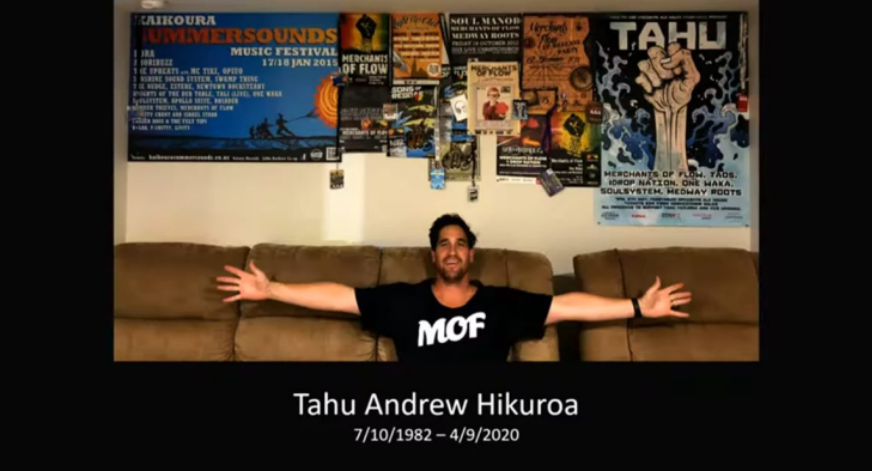How one friends experience shaped my expertise, and could help you too
His name was Tahu, and he is the reason I understand the journey of a charity founder so well.
In early 2017, our friend Tahu was diagnosed with terminal brain cancer and while we were all left reeling from that news, my thought process went into overdrive over the impact this would have on his whānau.
Torn between wanting to do something to help, but realising the overwhelm of that situation for the very people that needed the help, I went to another friend and pitched the beginning of an idea.
Over the days and weeks that followed we pulled together a group of whānau and friends to support the Hikuroa whānau practically; not just with financial donations, but by being a channel that could take care of organising a torrent of info and the many generous offerings people were pouring for this whānau in need.
We raised funds via events, we helped to organise and promote other events. But most of all we tried to relieve pressure from Tahu's wife Jo, so she didn't have to be the person coordinating others as well as navigating their process of grief for their lost future.
When things started to settle down and our need looked to be ending, our journey instead took a detour.
Our support had clearly demonstrated a solution for the need of others, and a legacy for Tahu.
Our evolution was to become a registered charity, by extending our aroha and manaakitanga to others like Tahu and Jo and their whānau; people that fall through the gaps in our health and social system via a health diagnosis that is as inequitable as it is underresearched and unsupported.
For over a decade prior, I had taught people what they needed to legally know about operating a not-for-profit (NFP) organisation, and I had been part of several community groups, but until Tahu's request to expand our scope I had never formally been part of the establishment and governance of a NFP entity.
Let me tell you now, experience does not equal expertise.
That only comes from time spent practicing and refining. And that last part is important.
See, my experience meant I knew what we needed to do, but it didn't give me any concept of what it would be like in putting this into action.
Because the entity had been borne of my thought process, I ended up in the role in charge. And I took that so seriously that I took on everything myself, delegating very little and becoming more and more weighed down.
I held so much of the process in my head and within my systems, that if anything had happened to me, it would have risked everything we were working towards.
Sound familiar? It will to most founders.
The real risk to us though was in a lack of processes and policy.
We meant to document our guidelines, but there never seemed to be time. We loosely agreed on processes for those we supported, but didn't prioritise those for ourselves.
That turned out to be a mistake. When we had what could have been a conflict if interest crop up, we didn't have a clear path to follow.
That meant that we had an internal dispute, and no clear way to resolve it without hurt feelings.
And there were plenty of those on all sides.
Years later, I can't look back and say any of us handled it particularly well. It still makes me cringe, and I hate that it put any kind of tarnish on the legacy we were building for Tahu.
While the only impact that instance had was upon our collective and individual feelings, it was the beginning of the end for me as chair of our trust board.
I realised I couldn't do good governance and manage operations, and while that was partly due to my confidence taking a hit in the pushback to my delegation it had brought to light one of our major flaws: something that unfortunately impacts the majority of grassroots NFP organisations.
It is not possible to do good governance if you are also entrenched in management and operational aspects of your business activities.
It is not possible for you to look at things objectively, if you are also weighed down in the doing.
We changed how we approached things and the roles we held soon after that experience, and we continued to help people across the country. People like Tahu who had life for themselves and their whānau flipped upside down by the diagnosis of a brain tumour.
Starting, steering and contributing towards this incredible organisation gave me the ability to help people I loved in a way that meant they could make a lasting impact
In return I gained perspective and expertise on operating a charity that can achieve the impact that was anticipated. I've taken the practical lessons learned from this and developed a framework for other NFP organisations, a framework that is simple and that gets results.
This year I stepped down from the board of trustees that governs the legacy Tahu left behind. Not because I no longer wanted to be involved, but because I am committed to ensuring fresh eyes and ideas will be able to increase the impact of that legacy.
One of the best ways to grow legacy, is by removing ego from the situation.
The others are by making sure you've got the right processes in place and people dedicated to ensuring the impact of the organisation is achieved.
The Tahu Hikuroa foundation was established by a group of whānau and friends in response to the need of a whānau that had their entire life flipped upside down in a very short space of time.
7 years after establishment the charity is now governed by another group of whānau and friends, including Tahu's widow Jo.
Tahu died three years ago today, September 4th 2020.
His legacy, the aroha and manaakitanga he was so good at providing to others, will continue to be shared with many more whānau across the motu for years to come.

